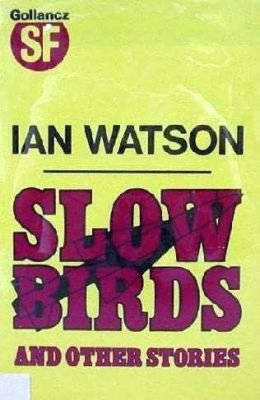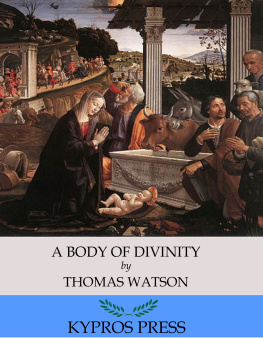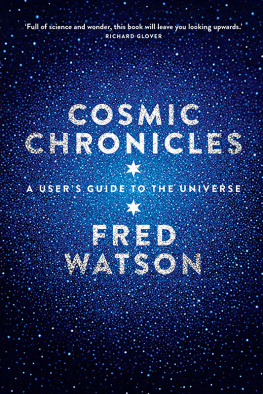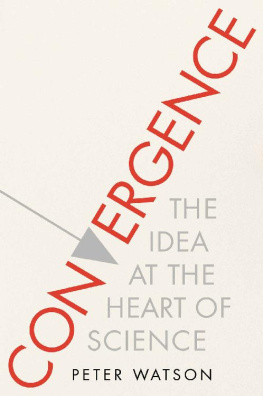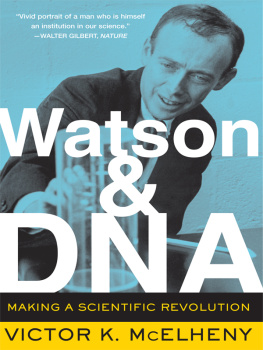Hewett Cottrell Watson was a pioneer in a new science not yet defined in Victorian times ecology and was practically the first naturalist to conduct research on plant evolution, beginning in 1834. His achievement in British science is commemorated by the fact that the Botanical Society of the British Isles named its journal after him Watsonia but of greater significance to the history of science is his contribution to the development of Darwin's theory of evolution. The correspondence between Watson and Darwin, analysed for the first time in this book, reveals the extent to which Darwin profited from Watson's data. Darwin's subsequent fame, however, is one of the reasons why Watson became almost forgotten.
At the same time, Watson can be called a classic Victorian eccentric, and his other ambition, in addition to promoting and organizing British botany, was to carry forward the cause of phrenology. Indeed, he was a more daring theoretician in phrenology than ever he was in botany, but in the end he abandoned it, not being able to raise phrenology to the level of an accepted science. This biography traces both the influences and characteristics that shaped Watson's outlook and personality, and indeed his science, and the institutional contexts within which he worked. At the same time, it makes evident the extent of his real contributions to the science of plant ecology and evolution.
About the Author
Frank N. Egerton is Professor of History of Science at the University of Wisconsin-Parkside. He has published widely on the history of ecology and history of evolutionary biology Currently he is writing a history of the ecological sciences. He has edited History of American Ecology and Edward Lee Greene's Landmarks of Botanical History.
Science, Technology and Culture, 1700-1945
Series Editors
David M. Knight
University of Durham
and
Trevor H. Levere
University of Toronto
This new series focuses on the social, cultural, industrial and economic contexts of science and technology from the 'scientific revolution' up to the Second World War. Economic historians now cover the relations of science to technology and industrial application, while social and cultural historians have similarly recognized the realms of science and technology and indeed, that these have helped to define culture and society. Through the agricultural and industrial revolutions of the eighteenth century, the coffee-house culture of the Enlightenment, the spread of museums, botanic gardens and expositions in the nineteenth century, to the Franco-Prussian war of 1870, seen as a victory for German science, this process has gathered momentum; while in the twentieth century the dependence of society, in both war and peace alike, on science and technology is evident. This series will provide an outlet for studies that address issues of the interaction of science, technology and culture in the period from 1700 to 1945, at the same time as including new research within the field of the history of science itself that embraces these perspectives.
Also in this series
Chemical Structure, Spatial Arrangement:
The early history of stereochemistry , 1874-1914
Peter J. Ramberg
Science, Technology and Culture, 1700-1945
HEWETT COTTRELL WATSON
Hewett Cottrell Watson
Victorian plant ecologist and evolutionist
Frank N. Egerton
University of Wisconsin-Parkside
Foreword by
David L. Hull
Northwestern University
First published 2003 by Ashgate Publishing
Reissued 2018 by Routledge
2 Park Square, Milton Park, Abingdon, Oxon OX14 4RN
711 Third Avenue, New York, NY 10017, USA
Routledge is an imprint of the Taylor & Francis Group, an informa business
Copyright Frank N. Egerton, 2003
The author has asserted his moral right under the Copyright, Designs and Patents Act, 1988, to be identified as the author of this work.
All rights reserved. No part of this book may be reprinted or reproduced or utilised in any form or by any electronic, mechanical, or other means, now known or hereafter invented, including photocopying and recording, or in any information storage or retrieval system, without permission in writing from the publishers.
Notice:
Product or corporate names may be trademarks or registered trademarks, and are used only for identification and explanation without intent to infringe.
Publishers Note
The publisher has gone to great lengths to ensure the quality of this reprint but points out that some imperfections in the original copies may be apparent.
Disclaimer
The publisher has made every effort to trace copyright holders and welcomes correspondence from those they have been unable to contact.
A Library of Congress record exists under LC control number: 2002022628
ISBN 13: 978-1-138-72346-7 (hbk)
ISBN 13: 978-1-315-19300-7 (ebk)
Dedicated to
David Ellis ton Allen
Andrea Lynn Egerton
Robert Glen
H.C.Watson (1846), by Margaret Sarah Carpenter.
- Figures
- Frontispiece H.C. Watson (1846), by Margaret Sarah Carpenter. Royal Botanic Gardens, Kew.
- Tables
The millions of species that populate the earth are related to each other in very complicated ways. They form all sorts of clusters, some sharply bounded, most with fuzzy, overlapping boundaries. Years ago I conducted a series of interviews with systematists and evolutionary biologists in which I asked my subjects which group of organisms they first investigated in any detail. I then asked if this particular point of entry into the living world influenced their later ideas. If they had gained entry to the living world by studying a different group of organisms, might they have come to different conclusions? All of my subjects said yes. Not only did their point of entry influence their early views, but also it probably continued to exert influence up to the present.
Victorian scientists also form a web of overlapping scientific relationships. One wonders what a study of Victorian scientists using the methods of numerical taxonomists would look like. Some scientists would be the focus of numerous professional alliances; other would be outliers. Unfortunately, students of Victorian science have not provided us with such a highly general mapping of Victorian scientists. Instead, we are presented with much more limited pictures. Some authors study groups of related scientists, for example, Rudwick (1985), but the usual mode of analysis remains the more tractable scientific biography. The reader gains entry into Victorian science through the careers of individual scientists. But if the point of entry into the living world has such a strong and lasting influence on systematists and evolutionary biologists, it is no less likely that the scientists who serve as points of entry for historians will influence our understanding of Victorian science.
shows us how Victorian science looked from the perspective of Robert Chambers. Now Frank Egerton in his Hewett Cottrell Watson: Victorian plant ecologist and evolutionist has done the same for Watson.
For anyone who has read much in the Darwin literature, the name H. C. Watson might sound somewhat familiar. Wasn't he a phrenologist? But as Egerton shows he was much more than a phrenologist. In fact, his work in botanical systematics and plant geography were of even greater importance than his early work promoting phrenology. When Watson began his career, Victorian science was becoming professionalized and a few scientists were even writing general treatises on the nature of science. Watson was not wealthy, but he possessed enough financial resources that he did not have to earn his keep. Although jobs in science that paid a salary were beginning to open up, Watson was never able to get any of these positions.


